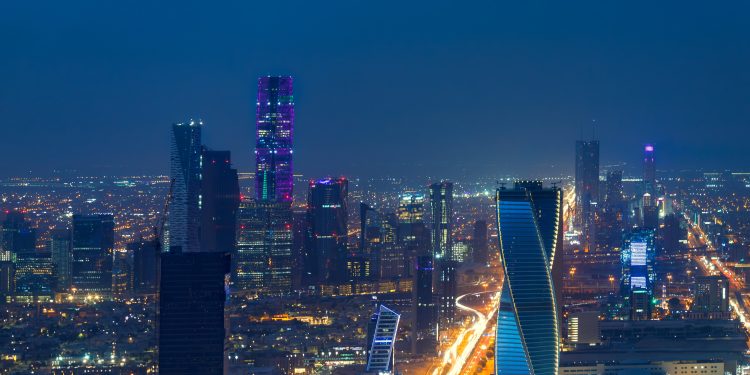Saudi Arabia is set to channel a lower amount of capital into its oil industry than what was previously anticipated, as part of its ambitious strategy to allocate $1 trillion across various strategic sectors by 2030.
An analysis by Goldman Sachs Group Inc. indicates that approximately 73% of the kingdom’s total investments will be injected into non-oil sectors by the end of the decade, marking an increase from the bank’s former projection of 66%. This strategic reallocation reduces the portion of funds earmarked for the oil sector to about a quarter of the total investments, emphasizing the nation’s commitment to diversifying its economy through sectors such as metals and minerals, transportation and logistics, and digital technologies.
The economic overhaul, guided by Crown Prince Mohammed bin Salman’s Vision 2030, aims to diminish the country’s dependence on crude oil revenues by welcoming investments in a variety of new industries and revamping Saudi Arabia’s international image.
Even as capital expenditures in the oil industry are expected to decline by $40 billion by 2028, natural gas is projected to play a significant role in Saudi Arabia’s efforts toward decarbonization, economic progression, and diversification, according to Faisal AlAzmeh, head of CEEMEA equity research at Goldman.
Current market conditions, with Brent crude oil prices around $80 per barrel and Saudi oil production lowered to about 9 million barrels per day, present the challenge of a potential increase in the nation’s budget deficit. The plunge in government oil revenues, which have fallen by roughly one-third from the 2022 average, when prices were near $100 per barrel, underscores the continued fiscal reliance on hydrocarbons.
The country’s budget deficit for the second quarter was reported at 15.3 billion riyals ($4.1 billion), and it is anticipated that the budget will remain in deficit for the next few years. Goldman’s research forecasts that the deficit could grow to 4.3% of the gross domestic product in the current year, an increase from 2% the previous year.
Nevertheless, the kingdom is experiencing a surge in financing for new sectors, with renewable energy investments witnessing significant growth. The sector is slated to receive $235 billion, a substantial rise from the prior estimate of $148 billion, as Saudi Arabia sets its sights on more than doubling its renewable energy capacity by 2030.


